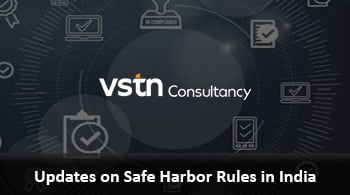
Transfer Pricing – Latest Updates on Safe Harbor Rules in India
The Central Board of Direct Taxes (CBDT) yesterday released certain amendments in the Income Tax Rules, 1962 by expanding the scope of Safe Harbor Rules (SHR) vide Notification no. 21/2025.
Key highlights include:
- Revised Thresholds: The threshold for availing Safe Harbor has been updated from INR 200 crores to INR 300 crores, offering enhanced coverage and opportunity for MNE’s to adopt the Safe Harbor Rules. This revision is applicable for eligible transactions viz., provision of software development services, information technology & related services, knowledge process out-sourcing services and provision of contract R&D services and for generic pharmaceutical drugs.
- Extended Safe Harbor Period: The assessment years covered under SHR have been extended up to AY 2026-27 i.e. the scope has been extended for FY 2024-25 and FY 2025-26.
- Expanded Applicability: These rules now apply to entities engaged in the manufacture of lithium-ion batteries for use in electric/hybrid-electric vehicles. Core auto components therefore now includes lithium-ion batteries used in electric and hybrid vehicles and the targeted mark-up is 12%.
- Fostering Investments & Ease of compliance : The updated Safe Harbor provisions aim to encourage foreign investments by ensuring tax certainty for entities planning to invest in the EV segment. This update in the Rules is expected to reduce transfer pricing disputes.
- Clarification: The notification has clarified that the safe harbour rule will apply for each AY separately.
Action points for taxpayers:
- Evaluate / Consider opting of SHR for applicable transactions in case the threshold falls within INR 300 crores;
- With the SHR made applicable for FY 2024-25, taxpayers can consider making true-up adjustments within the current financial year itself, before closure of books of accounts.
- MNE Groups engaged in manufacturing and export of lithium-ion batteries for use in electric/hybrid-electric vehicles, where 90% or more of the total turnover is to OEMs can evaluate opting for SHR.
- The visibility on applicability of SHR for FY 2025-26 would bring more ease to the taxpayers through aiding them in planning their working capital and managing their cash flows effectively.
In the budget speech the finance minister announced the expansion of SHR, which is now reflective through inclusion of Lithium ion battery as part of auto components. However, the rationalisation of the rates and inclusion of other litigated transactions were some of the expectations from the industry, which was not covered in the current notification. The amendment to SHR by the CBDT is a welcome move as it would encourage more taxpayers to opt for SHR.
As businesses expand across borders, navigating complex transfer pricing regulations becomes critical. At VSTN Consultancy, a global transfer pricing firm, we specialize in helping companies stay compliant and competitive across key markets including:
India | UAE | Singapore | USA | KSA | Dubai | Asia Pacific | Europe | Africa | North America
Whether you’re preparing for benchmarking intercompany transactions, or developing robust TP documentation, our team is here to support your international strategy and Compliance.
Contact us today to explore how we can partner with you to optimize your global transfer pricing approach.
#TransferPricing #TransferPricingFirm#VSTNConsultancy #TaxCompliance #IndiaUAEUSA
#TPExperts#TransferPricingExperts#GlobalTransferPricingFirm
